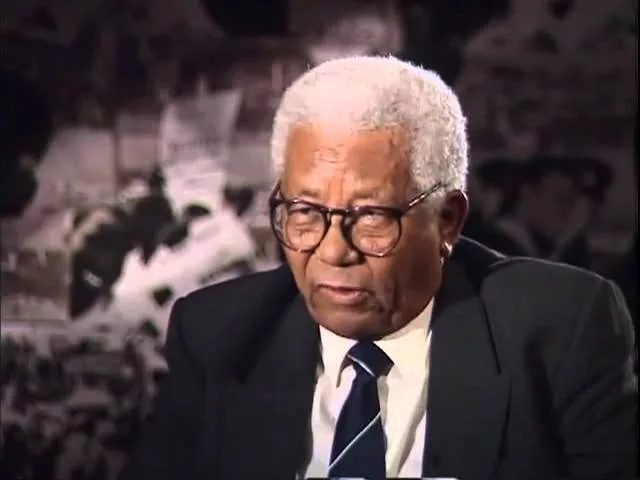The death, this week, of Walter Sisulu, at the age of 90 years, represented a major loss to the people of South Africa, and a significant
vacuum in the pantheon of genuine heroes of the African peoples.
Walter Sisulu, who was born in 1912, the year of the formation of the African National Congress, belonged to the generation of militants who completely dedicated themselves to the struggle against apartheid, and for the building of a non-racial democratic society in South Africa.
Walter was particularly unique, in the sense that he became a major organiser of the national liberation movement, from the background of very little formal education, and a root deeply located in the working class of South Africa and the urban masses.
Earlier in the course of the 1940s, he had shown brilliant organisational ability and a dedication to the re-organisation of the ANC from its laid-back background of being a platform of petty-bourgeois lawyers, teachers, clergymen and chiefs, whose mode of opposition was the submission of petitions to the chieftains of the apartheid system.
Walter Sisulu along with Oliver Tambo, Joe Slovo, Duma Nokwe, Nelson Mandela and others, formed the ANC Youth League in 1944, and under the slogan, Freedom in our Life Time, turned the ANC into a mass movement of the South African people, in the urban and rural areas of the country.
It was to the credit of Walter Sisulu and his generation that they were able to forge a theory and praxis of liberation that rejected racism and sharpened the focus of the entire liberation movement.
The height of that movement was attained with the adoption of the Freedom Charter in 1956, at the Kliptown Congress of the People. At a time when certain sections of the African liberation movement were arguing for a ‘reversed racism,’ Walter Sisulu and his comrades empathically stated that ‘South Africa be longed to all who live in it, Black and White.’
When the movement of the 1950s was finally repressed by the apartheid government, Walter Sisulu joined the underground leadership of the new Umkhonto Wesizwe, the armed wing of the liberation movement. Arrested and arraigned during the Rivonia trial, he would spend 27 years in prison, without abandoning the commitment which took him to prison: building a non-racial, democratic South Africa.
With the release of all political prisoners and the assumption of power by Nelson Mandela and the ANC, Walter resumed life in society with his characteristic self-effacing humility. Yet the South African people knew he belonged at the very height of the movement which achieved their liberation.
Walter Sisulu’s passing this week, in the words of Nelson Mandela, who was recruited into the ANC by Sisulu, “has created a void.” He represents the most selfless commitment to the great goal of human liberation. And in a continent where we have had more villains than heroes, in the context of nation building, Walter Sisulu represents one of the greatest examples of heroism in Africa. May his example endure.


